Scholarships & Awards
The Physics Department at Virginia Tech is extremely fortunate to have many generous benefactors who have endowed the scholarships and awards for our undergraduate and graduate students so that they may better concentrate on their respective studies and research.
The recipients, both undergraduate and graduate, are chosen each year by the departmental Awards and Honorifics Committee, and the awards are presented at the Physics department’s Awards Ceremony in April of each year.
Once you have been accepted into Virginia Tech and have declared yourself a physics major and you are making good progress towards the Physics degree, you are automatically considered as a candidate. You should consult the appropriate check sheet to monitor your progress. Thus, undergraduate students need not fill out any kind of application to be eligible for a scholarship or award. Recipients are notified around March of each year, and receive their awards at the Awards Ceremony in April.
Wan-Zia Scholarship
Established by Prof. B. Schmittmann in 2012, the Wan-Zia Scholarship is endowed through generous donations from the friends and colleagues of Prof. R. K. P. Zia. Intended as a continuation of the C. H. Wan Scholarship, it is awarded to graduate and/or undergraduate students who are recognized for excellence in scholarship and active engagement in research.
Robert P. Hamilton Prize
This prize is given annually to a rising senior who exemplifies excellence in the achievement of high personal and scholarship standards and promise for a career in Physics. No application form is necessary. All declared Physics majors meeting the above criteria will be considered for this scholarship.
Alice Estes Martin Scholarship
This scholarship is awarded annually to a qualified physics major who is committed to teaching physics in secondary education. The recipient must be a rising junior or senior with a cumulative GPA of at least 2.7, and is chosen on the basis of (1) evidence of dedication to excellence in the teaching profession and (2) academic achievement. No application form is necessary. All declared Physics majors meeting the above criteria will be considered for this scholarship.
Webster and Sara Schoene Richardson Memorial Scholarship
This scholarship is awarded annually to a Physics major who exemplifies excellence in scholarhsip and departmental service. No application form is necessary. All declared Physics majors meeting the above criteria will be considered for this scholarship.
Hugh D. Ussery Scholarship
This scholarhsip is given annually to a rising junior Physics major who exemplifies excellence in scholarhsip and promise for a rewarding career in Physics. No application form is necessary. All declared Physics mjors meeting the above criteria will be considered for this scholarship.
Frank Leigh Robeson Scholarship
This scholarship is awarded to a Physics major who has demonstrated achievement, personal integrity, extracurricular leadership, community services, and an appreciation of Physics. No application form is necessary. All declared Physics majors meeting the above criteria will be considered for this scholarship.
Colonel Nelson Carey Brown Memorial Scholarship
This scholarship is awarded annually to an incoming freshman who demonstrates both academic ability (as evidence by the maintenance of at least a 3.0 grade point average) and financial need. No application form is necessary. All declared Physics majors meeting the above criteria will be considered for this scholarship.
Daniel C. and Delia F. Grant Endowed Scholarship
This scholarship is given (1) to an incoming freshman with preference for a national merit scholarship, which is renewable for three more years if the awardee is a national merit scholar and maintains the minimum of 3.5 GPA, and (2) to an outstanding rising junior or senior, if the second scholarship is not already awarded to a continuing merit scholar. No application form is necessary. All declared Physics majors meeting the above criteria will be considered for this scholarship.
Robert Lee Bowden, Jr. Essay Prize
In today's world, writing and communication skills for science students are becoming ever more critical. Almost all career paths require effective communication with non-technical audiences and the general public. In 2008, the Bowden Prize was established in order to encourage and reward excellent science writing.
H. Y. Loh Award
This award is given annually to one or more graduating seniors in Physics who exemplify excellence in scholarship. No application form is necessary. All declared Physics majors meeting the above criteria will be considered for this scholarship.
Robert C. Richardson Scholarship
This scholarship is awarded annually to a Physics major. Consideration for a recommendation is provided to the Scholarship Awards Committee of Department of Physics. Criteria shall be as broad as possible. No application form is necessary. All declared Physics majors meeting the above criteria will be considered for this scholarship.
Ladies of Robeson Award
This award is given annually to an undergraduate and/or graduate females. Each year, two awards are chosen. One to a female undergraduate student who will pursue a graduate program and one to a female graduate student who will pursue a post-doctoral position, outside of Virginia Tech. All declared Physics majors meeting the above criteria will be considered for this scholarship.
James F. Sayre Scholarship
This award is given annually to an undergraduate students in the Physics. All declared Physics majors meeting the above criteria will be considered for this scholarship.
Doris Tomczak Jefferson and James Joseph Jefferson Scholarship
This award is given annually to an undergraduate student. All declared Physics majors meeting the above criteria will be considered for this scholarship.
Graduate students are nominated by faculty following a call for nomination issues by the Awards and Honorifics Committee. Recipients are notified around March of each year, and receive their awards at the Awards Ceremony in April.
William E. Hassinger Graduate Fellowship
In Spring 2006, the physics department first presented the William E. Hassinger Graduate Fellowship as one of its most recent endowments. A physics graduate in the Class of 1950, Bill has been an enthusiastic supporter of our department. This fellowship was created to encourage and support students coming from the surrounding communities, who are pursuing graduate degrees in physics.
Ray F. Tipsword Graduate Scholarship
This scholarship is a one-time award given annually to a Ph.D. candidate whose dissertation research has been established to be in the area of Condensed-matter Physics, Optics, or Statistical Physics. No application form is necessary. All Ph.D. candidates in the area of research identified above are considered for this award.
James R. Dunn Award
This award is given to a second-year graduate student who has actively fostered a spirit of goodwill in the department and has demonstrated a deep enthusiasm for physics. No application form is necessary. All declared Physics majors meeting the above criteria will be considered for this scholarship.
Clayton D. Williams Graduate Fellowship in Theoretical Physics
This award was established in 2008 by Dr. Klaus Wiemer and his wife, Stella Wiemer. The late Dr. Wiemer was a proud alumnus of the College of Science, having received his Ph.D. in physics in 1969. The couple created this award in honor of Associate Professor Emeritus of Physics, Dr. Clayton D. Williams, who taught full-time at Virginia Tech from 1961 to 1996, and who was the late Dr. Wiemer's mentor. Recipients shall be, at the time of receipt of the fellowship funds, graduate students within the Department of Physics, demonstrating academic excellence and good progress towards a Ph.D. in theoretical physics.
Dr. James A. Jacobs Memorial Graduate Fellowship
The Dr. James A. Jacobs Memorial Graduate Fellowship was established in 2007 as a memorial to Dr. James A. Jacobs. Dr. Jacobs was a professor in the department from 1960-1978 and served as the department head from 1960-1973. Faculty and students who remember Dr. Jacobs and his numerous accomplishments established the award in his honor. It recognizes a graduate student who demonstrates academic excellence.
Lubna Ijaz Scholarship
This scholarship is awarded annually to a major who has devoted time and effort for services that benefit the physics community. No application form is necessary. All declared Physics majors meeting the above criteria will be considered for this scholarship.
Wan-Zia Scholarship
Established by Prof. B. Schmittmann in 2012, the Wan-Zia Scholarship is endowed through generous donations from the friends and colleagues of Prof. R. K. P. Zia. Intended as a continuation of the C. H. Wan Scholarship, it is awarded to graduate and/or undergraduate students who are recognized for excellence in scholarship and active engagement in research.
Award for Graduate Teaching Excellence
Established in 2007, this award recognizes excellence and exemplary commitment in the preformance of teaching duties. It is awarded to a graduate student who exhibits outstanding rapport with undergraduates and successfully fosters understanding of physics concepts. The department strives to encourage and acknowledge this valuable contirbution to our education mission.
Ladies of Robeson Award
This award is given annually to an undergraduate and/or graduate females. Each year, two awards are chosen. One to a female undergraduate student who will pursue a graduate program and one to a female graduate student who will pursue a post-doctoral position, outside of Virginia Tech. All declared Physics majors meeting the above criteria will be considered for this scholarship.
Undergraduate
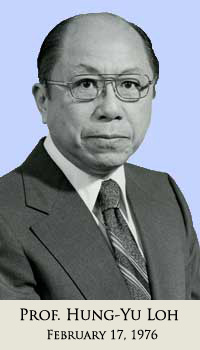
The H. Y. Loh Award, a cash prize awarded upon graduation, became the very first award or scholarship dedicated to our physics majors. As a token of the high esteem in which Professor Loh was regarded by his colleagues, Professor Ray F. Tipsword approached colleagues to create the endowed award, which was first given in 1977.
Professor Hung-Yu Loh first came to Virginia Tech from Shanghai, China in 1941 as a graduate student. He received his master's degree from Tech in 1943, and then went on to Johns Hopkins University where he received his Ph.D. in 1946. He was hired in 1948 to become the first Chinese faculty member at Virginia Tech. His research was in the field of experimental thin film optics,
Prof. Loh was a wonderful teacher and, in 1959, he became the first physics faculty to be awarded the William E. Wine Award for Excellence in Teaching, which had just been established in 1957. It was then, and still is now, the most prestigious teaching award at Virginia Tech, the honor of which is reserved to only three faculty members per year.
The H. Y. Loh Award is made each spring to the graduating physics major who best exemplifies Dr. Loh's very high academic and personal standards. It is considered the most prestigious award for undergraduates in the physics department.
2025 Addison Glozer, Jonathan Hartman, Nishad Manohar, James O’Hora, Jr, Kobe Okasako
2024 Yannick Pleimling
2023 Timothy Proudkii
2022 Dylan Bloodworth, Bella Brann, Cathleen Ridder, and Nathan Tompkins
2021 Izel Giovannelli, Olti Myrtaj, and Liam Welch
2020 Qianqin Hang– Wuxi, Hayden Hollenbeck
2019 Nicholas (Nick) Ekanger
2018 Matthew Henriques
2017 Christian Gilbertson, Samantha Spytek, James Stidham
2016 Michael Brennan, Donovan Buterakos, Jennie Paine
2015 Mark Brown, Adam Mills, Kyle Stewart
2014 David “Matt” Kriete Jr., James Mayberry, Marc Pomeroy, Keith Tauscher
2013 Andrew Lassiter
2012 Sara Case, William Love
2011 Siddharth Venkat
2010 Brian Roper, Justin Waugh
2009 Kevin Finelli
2008 Jonathan Hughes, Brendon Loiselle
2007 Linh Pham, Brian Skinner
2006 David Erickson, Mark Washenberger
2005 Travis Merritt
2004 Justin Krometis
2003 Beth Ann Reid, Jerome Mettetal II
2002 Anubav Vasudevan
2001 Joshua T. King
2000 Seth Hornstein
1999 Jean Hager
1998 Leah B. Shaw
1997 Keith Daniel Humfeld
1996 Carter R. Hall
1995 Matthew J. Novak
1994 Amanda M. Abeel, Erin F. Fleet
1993 Daniel S. Fisher
1992 Zoran Tajanovic
1991 Francis M. Creighton
1990 Anthony W. Ackley, Daniel C. Kilper, Normand A. Modine
1989 Anthony H. Minter
1988 Gregory D. McFall, Francis J. Summers
1987 Debora L. Green, Brett W. Johnson
1986 Richard R. Harman
1985 Robert C. Blasdell
1984 Anthony O. Rugari, Steven L. Rugari, Steven C. Weiss, Tmitri J. Zukowski
1983 Brian C. Redman
1982 David L. Hartman, Samuel J. Weinstein
1980 Stephen E. Fischer, James L. McDonald
1979 Richard I. Purman
1978 Mark S. Gorbics, Jan M. Guida, Joan A. Guida, Domingo Rocha, Jr.
1977 John Ford
1976 Dennis K. Evans
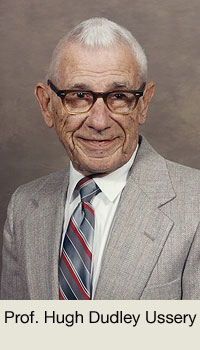
When the family of late Professor Hugh Dudley Ussery (May 4, 1904 - March 15, 1992) endowed a scholarship in his name in 1984, they established the first such award for the Virginia Tech Physics Department.
Professor Ussery, a native of Lancaster, S.C., was a graduate of Presbyterian College of South Carolina and received a master's degree in physics from the University of North Carolina at Chapel Hill. He taught at the Citadel in Charleston, S.C., then joined the faculty of the Physics Department in 1934, and remained at Virginia Tech for 37 years until 1972. He specialized in visible and ultraviolet spectroscopy, and during his time here, he developed a laboratory in optical spectroscopic analysis of which he was very proud.
In 1939, he was awarded the Jefferson Gold Medal of the Virginia Academy of Science, together with Dr. G. M. Shear of the Department of Plant Pathology, for their research on tabacco plant frenching in which Prof. Ussery utilized spectrographic methods to detect thallium in tobacco plants. (Shear and Ussery. Frenching of tobacco distinguished from thallium toxicity by spectrographic analysis. J. Agri. Res. 60: 129-140. 1940.)
His love of music, especially opera and violin, led to his hobby of making violins and repairing them as a community service. On June 14, 1959, he was featured in a Roanoke Times article titled "Physics and music. This unlikely combination has resulted in a fascinating, lifetime hobby for Professor Hugh Ussery of Virginia Tech."
2025 Peter Downey
2024 James O’Hora
2023 Brady Talbert
2022 Timothy Proudkii
2021 Bella Brann, Jim Furches
2020 Brian Bennett, Nathan Walker
2019 Patrick Crandall, David (Andy) Jackson
2018 Garret Youmans, Andrew Walker
2017 Corey Spohn, Austin Warren
2016 Nathan Galliher, Joon Park
2015 Donovan Buterakos
2014 Mark Brown
2013 Marc Pomeroy
2012 Mark Lewers
2011 Sara Case
2010 Siddharth Venkat
2009 Siddharth Venkat
2008 Kevin Finelli
2007 Eric Christensen, Patrick Coolidge, Micah Eassa, Brian Roper
2006 Justin Bangerter, Christopher Knorowski, Kristen Pervarski, Brent Pickering, Lado Tonia, Vipin Vijayan
2005 Colin Beal, Elizabeth Lowry
2004 Samir Abboud, Geoffrey Adams, Linh Pham, Eric Ward
2003 Larry Jon Cook, Brian Skinner, Mark Washenberger, Sara E. Yancey
2002 Aaron W. Wallo, Sara E. Yancey, Christopher W. Purcell
2001 Larry Jon Cook
2000 Anubav Vassudevan
1999 Jonathan Harris, Christopher Cartwright
1998 Thomas W. Evans, Jacob H. Stephens, Melissa J. Witmer
1997 Theodore J. Brookings, Jean A. Hager, Seth D. Hornstein
1996 Jason K. Aftosmis, Leah B. Shaw
1995 Keith D. Humfeld, Michael H. Kirby
1994 Carter R. Hall
1993 Matthew J. Novak
1992 Natalie D. Emrick, Anil A. Gopie, Chadd E. Smith
1991 Eugene K. Yen
1990 Leonard S. Christofek
1989 Paul G. Shiffler
1988 Normand A. Modine
1987 Anthony H. Minter
1986 Francis J. Summers
1985 Thomas A. Maufer
1984 Valerie Le Tourneau
The Daniel C. and Delia F. Grant Scholarships, established in 1990 and named in honor of the parents of Dr. Frederick C. Grant, a doctoral alumnus of the Department, are awarded (1) to an incoming freshman with preference for a national merit scholar, which scholarship is renewable for three more years if the awardee is a national merit scholar and maintains the status of physics major and merit scholar, and (2) to an outstanding rising junior or senior, if the second scholarship is not already awarded to a continuing merit scholar.
2025 Joely Bayless, Gabriel Centofanti, John Filko, Nathaniel Puckett, Fir Takacs
2024 Kenneth Edmison, Jonathan Hartman, Kyle Johnston, Nishad Manohar, Fir Takacs
2023 Kenneth Edmison III, Johnathan Hartman, Kyle Johnston, Nishad Manohar and Yannick Pleimling
2022 Brian Kearney, Zachary Milne, and Yannick Pleimling
2021 Dylan Bloodworth, Summer Chenoweth, Zachary Hoelscher, Brian Kearney, Reece Preisser, Fernando Ramos-Diaz, and Cathleen Ridder
2020 Dylan Bloodworth, Isabella (Izel) Giovannelli, Olti Myrtaj, Julie Nguyen, Reece Preisser, Fernando Ramos-Diaz, Cathleen Ridder
2019 Dylan Bloodworth, Monty Campbell, Isabella (Izel) Giovannelli, Olti Myrtaj, Julie Nguyen, Reece Preisser, Fernando Ramos-Diaz
2018 Isabella (Izel) Giovannelli, Nathan Haile, Ethan Kantz, Olti Myrtaj, Julie Nguyen, Joshua Weiss, Eric Wuerfel
2017 Jacob Adams, Johnathon Barbish, Andrew DellaFera, Ethan Kantz, James Simon, Joshua Weiss, Eric Wuerfel
2016 Jacob Adams, Matthew Henriques, Jacob Hodges, Ethan Kantz, James Simon, Joshua Weiss, Eric Wuerfel
2015 Jacob Adams, Brian Hammack, Matthew Henriques, Jacob Hodges, Joon Won Park, James Stidham, Henry Yockey
2014 Jonathan Baker, Colin Fallon, Laura Holsten, Bevin Huang, Alex Nikrant, Elizabeth Piersall, Abraham Shipley, Keegan Walkup
2013 Jonathan Baker, Colin Fallon, Sophia Novitzsky, Nicholas Sharp, Kyle Stewart, Gregory Veber, Michael Warnock
2012 Travis DePriest, Patrick Lewis, Marc Pomeroy, Trevor Richards, Keith Tauscher, Gregoy Veber, Michael Warnock
2011 David Konrad, Courtney Laughlin, Stephen Lutz, Matthew Mills, Gantt Ward, Harry White
2010 John Frey, Robert Heitz, John Hoffman, David Konrad, Andrew Lassiter, Stephen Lutz, Nicholas Merrill, Paul Miller, Curtis Ogle, Samuel Rosenkrantz, Nicholas Schaum, James Shpil
2009 Charles Baker, Alexander Corwin, Bhargav M. Kemburi Venkata Durga, Clinton Durney, John Frey, Brendan Howe, Chris Martin, Brian Roper, Stephen Schreider, Justin Waugh, Sophia Webster
2008 Eric Christensen, James Dowd, Micah Eassa, Brian Roper, Byron Wiedeman
2007 Daniel Baker, Anna Belak, Elizabeth Bonnell, Jonathan Hughes, Brendon Loiselle, Elizabeth Lowry, Michael Robertson, Emily Wade
2006 Samir Abboud, David Adams, Geoffrey Adams, Christopher Luck, Linh Pham, Brian Skinner, Brett Spencer, Eric Ward
2005 David Erickson, Christopher Luck, Sean Settle, Brian Skinner, Mark Washenberger
2004 David Erickson, Christopher Luck, Matthew Raum, Sean Settle, Mark Washenberger
2003 Brian J. Donovan, David Erickson, Christopher Luck, Eric Ritch, Sean Settle, Carol Thornton
2002 Jennifer Beard, Brian J. Donovan, Rafael Hipolito, Justin Krometis, Jerome T. Mettetal II, Carol Thornton
2001 Jerome T. Mettetal II, Anubav Vasudevan
2000 Steven M. Hair, Seth D. Hornstein, Joshua T. King
1999 Steven M. Hair, Seth D. Hornstein, Joshua T. King
1998 Theodore J. Brookings, Jean A. Hager, Seth D. Hornstein, Joshua T. King
1997 Theodore J. Brookings, Jean A. Hager, Seth D. Hornstein, Joshua T. King, Dennis S. Loo
1996 Theodore J. Brookings, Dennis S. Loo, Amy K. Spratley
1995 Scott M. Litvinoff, Dennis S. Loo
1994 Dennis S. Loo, Matthew J. Novak
1993 Scott M. Litvinoff, Maureen Mellody
1992 David E. Hulslander, Eugene K. Yen
1991 Leonard S. Christofek, Richard J. Panek
1990 Chadd E. Smith, Ronald S. Zellar

The Hamilton Prize is named in honor of Dr. Robert Preston Hamilton, who received his bachelor's degree from Virginia Tech in 1974. Led by Tech professor Dr. David Jenkins, several generous donors, including Hamilton's classmates, professors, and especially his family, established the Robert Preston Hamilton Prize in 1991, four years after his untimely death from cancer. As a prolific researcher in the field of experimental elementary particle physics, Dr. Hamilton established a notable record in the nine years he lived after receiving his Masters (1976) & Ph.D. (1979) from the University of California at Berkeley, working on experiments at the Lawrence Berkeley Laboratory, and the Stanford Linear Accelerator Center. This prize is awarded to a student who has exhibuted both career promise and the very high scholastic standards for which Dr. Hamilton was known.
2025 Nathan Dressler
2024 Matthew Kaupin
2023 Yannick Pleimling
2022 Timothy Proudkii
2021 Timothy Proudkii
2020 Darius Mattson
2019 Liam Welch
2018 Mark Almanza
2017 Jacob Hodges
2016 Brian Hammack
2015 Ryan Pederson
2014 Donovan Buterakos
2013 David Kriete, Jr.
2012 James “Gantt” Ward
2011 Robert Heitz
2010 Joseph Sullivan
2009 Joseph Sullivan
2008 John Hoffman
2007 Richard Bailey, Chris Knorowski
2006 Richard Bailey
2005 Schuyler Milton
2004 Mark Washenberger
2003 Christopher Purcell
2002 Jerome T. Mettetal II
2001 Beth Reid
2000 Joshua King
1999 Seth Hornstein
1998 Jean A. Hager
1997 Leah B. Shaw
1996 Michael H. Kirby, Dennis S. Loo
1995 Carter R. Hall
1994 Andrew J. Landahl
1993 Chadd E. Smith
1992 Tristan S. Massie
1991 Paul G. Shiffler
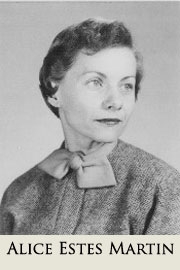
The Alice Estes Martin Endowed Scholarship was established in the Physics Department in 1991 to provide incentive and support to qualified physics majors who are committed to teaching physics in secondary school. Mrs. Martin, for whom the scholarship is named, was a teacher in Louisa County High School (Virginia) from 1941 through 1970. The awarding of this scholarship holds before new teachers those qualities that Mrs. Martin embodied in her love and dedication to teaching: knowledge of her subject, concern for her students, and the ability to inspire her students to learn, all of which led to the utmost respect from students and colleagues.
Mrs. Alice Danne Estes Martin was born in Louisa County on April 8, 1918. She graduated from the College of William and Mary, and received her Master's degree from the University of Virginia. In addition to teaching at Louisa County High School, she was a guidance counselor there as well. Alice was very active in her community - she served on the board of Germanna Community College, and was a member of the House of Burgesses Chapter of the National Society of Colonial Dames, the Mineral Historic Foundation, and the Louisa County Historical Society. Sadly, Mrs. Martin passed away on April 30, 2010. However, her legacy will live on through the scholarship named in her honor.
This scholarship was initiated by late Professor Dale Donald Long (January 30, 1935 - June 17, 2006), who contributed the funds from his 1991 Wine Award for Excellence in Teaching and named the scholarship for his esteemed former high school teacher. Additional funds needed to endow the scholarship were donated by former students, friends, and family of Alice Estes Martin, as well as alumni and friends of the Physics Department. Donations to the fund have also been made in memory of Thelma L. Roper, the late wife of Professor Emeritus L. David Roper, and in memory of Prof. Dale D. Long.
2025 Mason Wright
2024 Mason Wright
2019 Nicholas Treptor Hurtado
2018 Erin Fosnocht
2017 Erin Fosnocht
2016 Christopher Savage
2015 Daniel Balbarin
2014 Samantha Spytek
2013 Matthew Church
2012 Ron Pelkey, Jr.
2011 Emily Acken
2010 Christopher Martin
2008 Ashley Tabb
2007 Ashley Tabb
2006 Ashley Tabb
2003 Jeremy Saria
2002 Henry Burke Green
2001 Alma L. Robinson
2000 Alma L. Robinson
1998 Sonny W. Louie
1997 Amy Whiteaker Emerson
1996 Kenneth R. Burns
1995 Gary P. Foulks, Jr.
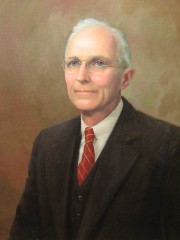
Early leadership in the development of the Virginia Tech Physics Department was due to the work of one man - Dr. Frank Leigh Robeson (1884-1974), after whom the physics building is now named. Dr. Robeson was the first doctorate level physicist at Virginia Tech, and was the author of a widely adopted physics textbook in the 1940's. A copy of Dr. Robeson's book is on display in Hahn Hall North Wing. He served as Department Head from 1918 to 1954.
In 1995, the Robeson family endowed a scholarship in his honor and memory.
2025 Nicholas Deinhart
2024 Ian Boyd
2023 James O’Hora, Jr
2022 Brannon Semp
2021 Nathan Tompkins, Lyubo Trayanov
2020 Benjamin Podlich, Clint Vaughan
2019 William (Will) Banner, Eli Welch
2018 Orien Altman, Brad Lundgren
2017 Matthew Henriques
2016 James Stidham
2015 Jennie Paine
2014 Kyle Stewart
2013 Adam Mills
2012 Andrew Lassiter
2011 William Love
2010 William Love
2009 Curtis Ogle
2008 Daniel Hockensmith
2007 Ben Intoy, Richard Samulski, Alex Wriston
2006 Lake Singh, Stefan Tatka, Emily Wade
2005 Brett Spencer, Annalisa Pawlosky, David Adams
2004 Laura Triplett, Wade Mattox
2003 Christopher Graziul, Heike Kohse-Busch
2002 Beth Ann Reid
2001 James Roberts, Seth Smith
2000 Alma L. Robinson
1999 Kaori Kuroda
1998 Jean A. Hager, Seth D. Hornstein, Michael L. Parks, Leah B. Shaw
1997 Michael L. Parks
1996 Samantha R. Fore, Joseph Vrabel III
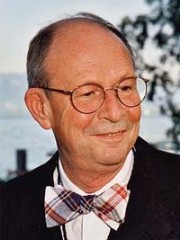
Through a generous gift by an anonymous donor, this scholarship has been established in honor of Dr. Robert C. Richardson, Nobel Laureate and F. R. Newman Professor of Physics at Cornell University.
Dr. Richardson attended Virginia Tech from 1954 to 1960 and earned his bachelor's and master's degress in physics. After a brief time in the United States Army, he returned to graduate school in physics at Duke University where he earned a Ph.D. in 1966. He then went on to Cornell University where he continued his research on low temperature physics, in particular, the study of the properties of liquid and solid Helium-3. In 1971 he discovered, in collaboration with David Lee and Douglas Osheroff, that liquid Helium-3 undergoes a pairing transition similar to that of superconductors. The three were awarded the 1996 Nobel Prize for Physics for this discovery.
2025 Karina Belkina, Benjamin Denson, Nathan Dressler, Austin Mason, Alexander Morris, Derek Wodotinsky, Pengze Wu
2024 Luke Dinicola, Peter Downey, Nathan Dressler, Xander Fry, Stephen Scott, Jackson Skidmore, Abigail Vancoevering, Tejas Vinod
2023 Matthew Crane, Judah DiStefano, George Hill, John Horger, Maverick Morrison, Noah Provenzano, Mya Shekitka, and Wyatt Thomas
2022 Grant Davis, Kenneth Edmison III, Addison Glozer, Jonathan Hartman, Kyle Johnston, Nishad Manohar, James O'Hora Jr., and Brady Talbert
2021 Steven Busby, Hunter Cowden, Emily Frank, RJ Loyd, Hana Mir, Jacob Morriss, Reegal Patel, Taelor Ryel, Jacob Speers, and Clint Vaughan
2020 Pierce Affleck, Jared Albert, Steven Busby, Summer Chenoweth, James Furches, Zachary Hoelscher, Brian Kearney, Reegal Patel, Timothy Proudkii, Lyubomir Trayanov
2019 Orien Altman, Maxwell Carpenter, Erin Fosnocht, James Furches, David Kokoski, Kevin Marquez Diaz, Darius Mattson, Benjamin (Ben) Podlich, Joshua (Clint) Vaughan, Nathaniel (Nathan) Walker
2018 William Banner, Patrick Crandall, Alison Gaylord, Diego Guerra, David Kokoski, Garrett Maddern, Darius Mattson, Ada Morral, Kelly Sullivan, Eli Welch, Lacey Wright2017 Mark Almanza, Nicholas Ekanger, Erin Fosnocht, Matthew Gill, Diego Guerra, Hayden Hollenbeck, David Jackson, Sydney Overton, Haley Simkins, Garrett Russell Youmans
2016 William Barber, Jonathan Barbish, Christian Gilbertson, Alex Nikrant, Sam Robbins, Corey Spohn, Chris Wollbrink, Henry Yockey
2015 Bryan Calloway, Joshua Galyean, Hilton Galyean, Elizabeth Piersall, Samuel Robbins, Carlos Segovia-Bustamante, Cory Spohn, Keegan Walkup
2014 Bart Brown, Michael P. DiCroce, Hilton Galyean, Brian Hammack, Adam Hodges, Corey Spohn, Hannah Ulrich, Joshua Vieitez
2013 Mark Brown, James Brumbeloe, Matthew Church, Laura Holsten, Bevin Huang, David Kriete, Megan Lilly, Jennie Paine, Elizabeth Piersall, Abraham Shipley, Alexander Winemiller
2012 Colin Fallon, Hilton Galyean, Telemachos Manos, Sophia Novitzky, Robert Orlean-Pobee, John Rahmani, Han Tong, Rebekah Watkins, Julia Zukowski
2011 Rachel Elliot, Joseph Heimburger, Robert Heitz, Thomas Howe, Patrick Lewis, Nicholas Merrill, Peter Raum, Anna Skinner, Matthew White, Tristan Wright
2010 Niels Christensen, Courtney Laughlin, Patrick Lewis, Gabriel Martinez, Matthew Mills, Frederick Moretti, Kyle Novak, Tyler Price, Peter Raum, James Ward, Harry White
2009 Robert Heitz, Daniel Hockensmith, Robert Kania, Andrew Lassiter, Colin Lorenz, William Love, Paul Miller, Kyle Novak, Nich Schaum, James Shpil, Joseph Sullivan
2008 Charles Baker, Justin Bangerter, Jonathan Cates, Alexander Corwin, Clinton Durney, John Echols, John Frey, Matthew Grote, Gordon Lott, Chris Martin, Curtis Ogle, Lake Singh, Ryan Smith, Joseph Sullivan, Christopher Tolpa, Justin Waugh, Sophia Webster
2007 Seth Ball, Justin Bangerter, Jonathan Cates, James Dowd, Wade Duvall, Kevin Finelli, Julian McMorrow, Brent Pickering, Shane Seaman, Lake Singh, Stefan Tatka, Christopher Tolpa, Lado Tonia, Byron Wiedeman
2006 Daniel Baker, Anna Belak, Timothy Donahue, James Dowd, Kevin Finelli, Jonathan Hughes, Brendon Loiselle, Elizabeth Lowry, Sean Settle, Byron Wiedeman
2005 Samir Abboud, Geoffrey Adams, Xinwei Gong, Jonathan Hughes, Heike Lohse-Busch,Linh Pham, Eric Ward
2004 Xinwei Gong, Jung Ho Kang, Heike Lohse-Busch, Travis Merritt, Annalisa Pawlosky, Brian Skinner
2003 Rafael Hipolito, Justin Krometis, Aaron Wallo
2002 Larry Cook, Christopher Graziul, Beth Reid
2001 Rafael Hipolito
2000 Michael D. Bryant
1999 Victor Gehman
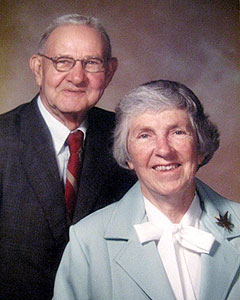
Both Web and Sara Richardson (who were classmates at VT in the class of 1932) taught in the Virginia Tech Physics Department for several decades, Web from 1936 and Sara from 1948, until they both retired in 1972. In addition to their work with the introductory courses, where they were known for their exacting standards, Sara developed a course called “household physics,” while Web developed an X-ray laboratory where he constructed extensive apparatus of which he was justly proud, and which was used by many of the first graduate students in physics at Virginia Tech.
After Web passed away in October 1997 and Sara in January 1998, this scholarship was established by family members in their memory.
2025 Connor Balcom, Natalie Brace, Alexander Drummond, Justin Gandhi, Jack Kelley, Ethan Lai, Graham Lang, Max Linville, Greyson Marshall, Jaden Minnick, Max Molinoff, Evan Rose, Mya Shekitka, Owen Shipley, Samuel Smaltz
2024 Matthew Crane, Haoyan Ding, Judah DiStefano, Alexander Drummond, Justin Gandhi, John Horger, Ethan Lai, Graham Lang, Jaden Minnick, Maverick Morrison, Ryan Mueller, Jake O’Brien, Mya Shekitka, Wyatt Thomas, Gerrit Vonk
2023 Grant Davis, Ethan Dolin, Nathan Dressler, Alexander Drummond, Justin Gandhi, Nathaniel Jun, Ethan Lai, Graham Lang, Zachary Milne, Sasha Mintz, Brannon Semp, and Gerrit Vonk
2022 Jared Albert, Joshua Buontempo, Grant Davis, Zachary Hoelscher, Geoffrey O'Malley, Taelor Ryel, and Canon Zeidan
2021 Emma Brown, Lucas Hughes, Zachary Milne, Yannick Pleimling, and Rocco Salvato
2020 Garrett Bimstefer, Bella Brann, Bryan Dobbins, Phillip Truppeli, Nathan Wagner
2019 Tigran L. Asryan, Kevin P. Brannick, Diego Arturo Guerra, Garrett Maddern, Ada Morral
2018 Marc Farrell, Hayden Hollenbeck, Andy Jackson, Kaila Nathaniel, Christopher Shute
2017 William Barber, Hannah Glaser, Kenneth McLarney, Issac Shoultz2017 William Barber, Hannah Glaser, Kenneth McLarney, Issac Shoultz
2016 Ryan Pederson, Samantha Spytek
2015 Michael Brennan
2014 Adam Mills
2013 Keith Tauscher
2012 Peter Raum
2011 Charles Baker
2010 Sara Case
2009 Micah Eassa
2008 Siddharth Venkat
2007 Jonathan Doughty, Daniel Hockensmith, Paul Trampert
2006 Elizabeth Bonnell, Laura Triplett
2005 Anna Belak, Adam Larsen
2004 Michael Robertson, Brett Spencer, Colin Beal
2003 Travis Merritt, Annalisa Pawlosky
2002 Andrew Fenley, Zachary Lewis, Edouard Bernard, Jeremy Saria, Jason Tabeling
2001 Christopher Graziul
2000 Beth Reid
1999 Kaori Kuroda
This scholarship was endowed by Dr. Nancy Brown in memory of her late brother, Col. Nelson Carey Brown, Virginia Tech Class of 1965. Col. Brown felt that both his education in physics and the leadership skills he learned in the Corps of Cadets were critical to his professional success.
2023 Tyler Patterson
2022 Tyler Patterson
2020 Matthew Brandt
2019 Brett Smith
2018 Alexis Barclift
2017 David Dembrosky
2016 Brett Smith
2015 Kaitlyn Sorenson
2014 Kaitlyn Sorenson
2013 James Mayberry
2012 James Mayberry
2011 James Mayberry, Marc Pomeroy, Lillie Robinson
2010 Charles Baker
2009 Gordon Lott
2008 Gordon Lott
2007 Gordon Lott
2006 Julian McMorrow
2005 Richard Foster
2004 Richard Foster
2003 Richard Foster
2002 Jennifer Beard
2001 Jennifer Beard
2000 Jennifer Beard
1999 Jennifer Beard
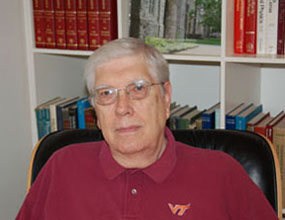
Dr. Robert Bowden first came to Virginia Tech as a graduate student in 1956. After one year, he left for a brief active duty tour in the U. S. Army to fulfill his ROTC obligation. He returned to the university to get his Master's degree in physics in 1958 with Dr. T. Marshall Hahn, Jr. as his major advisor. He obtained his Ph.D. in physics in 1963 with Dr. Clayton Williams as his major advisor. Dr. Bowden remained at Virginia Tech with a postdoctoral appointment under Dr. Andy Robeson until he joined the physics faculty as an assistant professor in the fall of 1963. He was promoted to associate professor in 1968 and to full professor in 1978. He retired in the spring of 1996.
His published interests and expertise are in mathematical physics, neutron transport, radiative transfer, and analytical, numerical, and chaotic analysis of non-linear integral equations.
His presentation interest is physics education, especially the use of computers in physics teaching. He and his beloved colleague Dale Long developed an extensive set of (software and apparatus) presentations in which data are collected and analyzed live in the classroom.
Since retirement, Dr. Bowden has become what is now called an Emeritus Professor in Residence. He has remained moderately engaged in physics by mentoring high school physics teachers, giving talks to a Governor's school, writing educational software, and teaching an occasional undergraduate physics class at Tech.
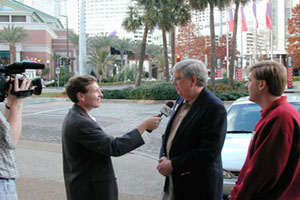
He is a big Virginia Tech football fan. One of his favorite stories is about attending the 2000 Sugar Bowl College football championship in New Orleans when Virginia Tech played Florida State. The coach at Florida State is, of course, Bobby Bowden, which happens to be the name that Dr. Bowden's childhood friends call him. To add a little mischief to his trip, he registered with his travel group, his hotel, and his dinner reservations as "Bobby Bowden." His youngest son, Brent, emailed WSLS TV in Roanoke to explain that Bobby Bowden, his wife, and sons would be cheering for Virginia Tech at the game. The TV channel ran a teaser all day claiming that they would have an interview with "Bobby Bowden" during their pregame show explaining how he would be cheering for Virginia Tech.
The tragedy of April 16, 2007 moved many of us to redo and rededicate our service to the University. It was in that spirit that Dr. Bowden's family established the Bowden Physics Essay Competition, not only to reward and honor high promise and good scholarship, but to provide a regular extra curricular activity that would encourage and promote good writing for our undergraduate physics majors. Observation and experimentation are cornerstones of physics. But physics at its core is an amalgam, an abstraction, and an accretion of ideas that makes clear and definitive writing a necessity. It is the Bowdens' hope, their desire, that this competition will become a tradition for our physics majors in their learning to write well, forcefully, and beautifully if they can.
Each year, students will receive an email from the undergraduate advisor regarding the essay submission process.
Photos courtesy of Dr. Robert Bowden
2025 James O’Hora, Jr
2024 Mason Wright
2023 Timothy Proudkii
2022 Timothy Proudkii
2021 Hana Mir
2020 Timothy Proudkii
2018 Josh Stevic
2017 Alison Gaylord
2016 Samantha Spytek
2014 Travis DePriest (Essay in PDF)
2013 Mark Brown
2012 Sophia Novitzky
2010 John Hoffman (Essay in PDF)
2009 Justin Bangerter (Essay in PDF)
Established by Prof. Beate Schmittmann in 2012, the Wan-Zia Scholarship is endowed through generous donations from the friends and colleagues of Prof. R. K. P. Zia. Intended as a continuation of the C. H. Wan Scholarship, it is awarded to and graduate and/or undergraduate students who are recognized for excellence in scholarship and active engagement of research
2025 Judah DiStefano
2024 Maria Ziu
2023 Matthew Kaupin
2022 Brannon Semp
2021 Elijah Gendron
2020 Elijah Gendron
2019 Hayden Hollenbeck
2018 Nick Ekanger
2017 Ralph Romero III
2016 Issac Shoultz
2014 Samantha Spytek
2014 Jennie Paine
2013 Mark Brown
2012 Mark Brown, Adam Mills, James “Gantt” Ward
The Ladies of Robeson Award was established in 2019 through a gift by an alumna Dr. Annalisa Pawlosky and Google. Awards are given to female undergraduate students who will pursue a graduate program, and to female graduate students who will pursue a post-doctoral position, outside of Virginia Tech. Graduate students with a first-author publication and undergraduates who have co-authored a paper are also eligible for this award
2025 Maria Ziu
2024 Julia Jones, Sasha Mintz
2023 Bella Brann and Hana Mir
2021 Lia Compton, Izel Giovannelli, Julia Kawas, Haydee Portillo
2020 Gabriella Gagliano, Ada Morral, Lacey Wright
2019 Kaila Nathaniel
Established in 2021 by the estate of Ethel L. Sayre, this scholarship supports undergraduate students in the Physics Department who have demonstrated academic achievement, merit, and good character.
2025 Yash Agarwal, Dennis Brickell, Isla Carlson, Brayden Dunlap, Clara McMullin, Brandon Reed, Emily Samples, Stephen Scott, Amethyst Serati, Alexander Shupp, Zara Syeda, Alexander Taylor
2024 Alec Burnett, Isla Carlson, Nicholas Deinhart, Gregory Durkin, George Hill, Austin Mason, Clara McMullin, Richard Naylor, Kobe Okasako, Tyler Patterson, Jonathan Roberts, Alexander Shupp
2023 Jordan Holmes, Lucas Hughes, Julia Jones, Clara McMullin, Kobe Okasako, Tyler Patterson, Rocco Salvato, Alexander Sarver, Wynter Sims and Brady Talbert
2022 Samuel Brown, Summer Chenoweth, Jacob Degregoris, Lucas Hughes, Julia Jones, Nicholas Morris, Richard Naylor, Nicholas Peters, Rocco Salvato, and Alexander Sarver
The Doris Tomczak Jefferson and James Joseph Jefferson Scholarship in Physics was established by their daughters - Lisa J. Jefferson ’79, Julianne Jefferson Knight ’77, Amy Jefferson Faust and Sharon Jefferson Wilson - in memory of their mother, Doris, and in honor of their father, Joe Jefferson. Doris T. Jefferson graduated from Virginia Tech in 1950 with a degree in Physics, and J. Joseph "Joe" Jefferson graduated from Virginia Tech with a degree in Physics in 1949 and a degree in Electrical Engineering in 1950. After college, Doris and Joe settled in Kingsport, TN where they raised a family. Joe had a successful career with Eastman Kodak. Doris remained passionate about the sciences and taught for many years. Doris's love of both science and teaching inspired the family to establish an endowed scholarship that will support future physics educators.
2025 Mason Wright
2024 Mason Wright
2023 Richard Naylor
2022 Seth Stuller
2020 Benjamin Arn
2019 Alison Gaylorwa
2018 Demory Williamson
Graduate
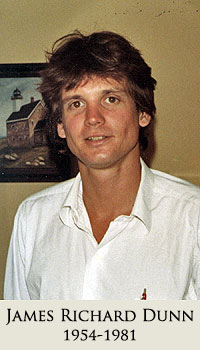
James (Jamie) Richard Dunn was born on April 4, 1954 in Queens, New York. He was the third of six sons in the Dunn family. Jamie went to college and received his B.S. degree from the State University College of New York at Oneonta in 1976 and joined our Physics Department in the Winter Quarter of 1977. Jamie was an exceptionally kind and generous graduate student whose deep enthusiasm for physics was only matched by his enthusiasm for life. One would, without exaggeration, see a budding Renaissance man in Jamie. He loved life and participated in every facet of it with great vigor. He actively fostered a spirit of good will in the department and was an advocate for graduate student involvement throughout his tenure. His boundless energy and inquisitive nature was infectious. Jamie was President of the Society of Physics Students and served on the Faculty Graduate Committee as graduate student representative.
Upon completion of his Ph.D. course requirements Jamie became Professor Alfred L. "Jimmy" Ritter's first graduate student. He completed a thorough background literature search on (e,2e) spectroscopy, designed several major pieces of apparatus for the spectrometer, and built a vacuum system. He assembled the instrumentation for measuring crucial parameters of the electron gun used in the spectrometer and developed the computer codes for initial testing and calibration of the electronic instruments that were used. Jamie was preparing the samples for his first experiments but did not live to write up the results.
On September 12, 1981 Jamie was in a fatal motorcycle accident here in Blacksburg, Virginia.
In recognition of his work, a Ph.D. was posthumously awarded and presented to his family at the June 9, 1984 Commencement Ceremony.
In memory of their son the Dunn family set up the James R. Dunn Award in Physics. It is meant to reinforce and acknowledge something of Jamie which we feel in some small way is carried on by the recipient of this award. Someone who embodies a love of physics and life in general, and indulges in both. He was of enthusiastic and kind nature, exhibited concern for his fellow human beings, and appreciated opportunities to gain knowledge whenever they presented themselves.
2025 Kenny Distefano
2024 Gyang Chung, Andrew Gustafson, Sarah Healy, Rachel Maizel
2023 Nicholas Smith
2022 Rachel Maizel
2021 David Smith
2020 Rathsara Herath Mudiyanselage
2019 Riya Nandi
2018 Adbhut Gupta
2017 Zach Stottler
2016 Sheng Chen
2015 Shadi Esmaeili
2014 Hiba Assi-Baalbeck
2013 Brandon Bear
2012 Ulrich Dobramysl
2011 Nasrin Afzal
2010 Mithun Bhowmick
2009 Anastasios Peppas
2008 Kanokwan Nontapot
2007 Anamika Gopal
2006 Juliette Mammei, Russell Mammei
2005 James N. Newcomer, Jia Jia Dong
2004 Mitra Shojania-Feizabadi
2003 Edward Layman
2002 Mark Makela
2001 Thomas Bullard
2000 Robert Astalos
1999 Sathon Vijarnwannaluk
1998 Wantana Songprakob
1997 Thayer ‘Chip’ Morris III
1996 Charles C. Figura
1995 Kristen Reinhart
1994 Daniel Korwan
1993 Bruce Toomire
1991 Charles Moller
1988 Charles Potter
1984 Robin Makin
1983 Warren Lewis
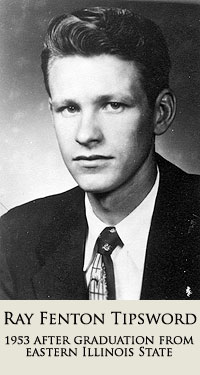
Professor Ray Fenton Tipsword (Sept. 9, 1931 - Dec. 4, 2009) grew up on a Southern Illinois farm and went to college at East Illinois State getting his B.S. in 1953, and went on to Southern Illinois to earn his M.S. in 1957. He majored in Physics. On active duty, after graduation, he served with the U.S. Army in the occupation of Korea. After his military service obligation was completed he briefly taught Physics at the University of Missouri at Rolla. Ray and his family then moved to Tuscaloosa, Alabama, where he began work in magnetic resonance under Professor Moulton at the University of Alabama. In 1963 he completed his Ph.D. at the University of Alabama and looked for a faculty position to teach Physics.
Ray accepted the offer of an Assistant Professorship here in the Physics Department at Virginia Tech in 1964 and remained on the faculty until 1991. He was a very dedicated and popular teacher and was honored with the Certificate for Excellence in Teaching for three consecutive years (1973-1976). In 1986 he was nominated (by students, alumni, and faculty within the College of Arts and Sciences) for and received the William E. Wine award. This award recognizes dedication and excellence in teaching.
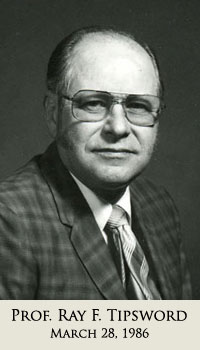
He developed a successful research program in quadrupole magnetic resonance and was advisor to eight graduate students who successfully completed their Ph.D.'s. From 1979-80 he served as acting department head, and for most of his nearly three decades of tenure with the department he chaired the shop committee and had a major influence on the development of our Machine and Electronics shops.
In 1991, on the eve of Professor Tipsword's Retirement from the Department of Physics, the Tipsword family decided to set up a graduate scholarship in honor of his lifelong efforts and to recognize graduate students who excel and are promising future physicists.
2025 Omolara Bakare
2024 Sohair ElMeligy
2023 Teshani Lihiniya Kumarage
2022 Chinmay Katke
2021 Eva Takou, Hong Yao
2020 Youngmin Lim, Ruslan Mukhamadiarov
2019 Adbhut Gupta
2018 Jacob Carroll, Riya Nandi
2017 Sheng Chen, Shadi Esmaeili
2016 Yuantao Xie
2015 Xiangwen Wang
2014 Panupon Samaimongkol
2013 Shaola Ren
2012 Lingling Xu, Yao Zhang
2011 Qian He, Shaola Ren
2010 Chalongrat Daengngam, Martin Rudolph
2009 Larry Cook
2008 Sameer Arabasi
2007 Kai Chen, Tao Jia
2006 Kanokwan Nontapot
2005 Anamika Gopal
2004 Edward Lyman
2003 Thomas Bullard
2002 Martin Drees
2001 Robert J. Astalos
2000 Prapong Klysubun
1999 Sathon Vijarnwannaluk
1998 Wantana Songprakob
1996 Daniela Marciu
1995 Reinaldo Jose Gonzalez
Established in Spring 2006, the physics department is honored to have the William E. Hassinger Graduate Fellowship as one of its most recent endowments. A physics graduate in the Class of 1950, Bill Hassinger has been an enthusiastic supporter of our department. This fellowship was created to encourage and support students coming from surrounding communities who are persuing graduate degrees in physics.
2025 Tristan Anderson, Bela Gnasso, Daniel Valmassei
2024 Joseph Camilleri, Kenneth Distefano, Galen Street
2023 Doyee Byun, Tommy Lam and Hunter Nelson
2022 Sean Heston, Tommy Lam, and Nicholas Smith
2021 Joseph Camilleri, Jason Czak, and Nicholas Ekanger
2020 Tommy Lam, David Smith, James Stidham
2019 Taylor Douglas Kimmel Jr., James Edward Stidham, III, Ada Warren
2018 Rebekah Hawkins, William (Bill) Rieger Jr., Zachary Stottler
2017 Bart Brown, Kate Pitchford, Peter Raum
2016 Jacob Carroll, Anna Lee, Jack Villanova
2015 Hiba Assi, Brandon Bear, Michael Meeker
2014 Nicholas Borchers, Patrick Jaffke, Peter Raum, Zack Yokley
2013 B. Douglas Edmonds, Ben Intoy, Michael Meeker, Erich See
2012 B. Douglas Edmonds, Travis Merritt, Martin Rudolph, Erich See
2011 B. Douglas Edmonds, Martin Rudolph, Matthew Shimer
2010 Eric Christensen, George Daquila, Zachary Lewis, Travis Merritt
2009 Sean Cutchin, Phillip Nelson, Matthew Raum
2008 Jonathan Cook, Zachary Lewis
2007 Matthew Frazier
2006 Aliya Gifford
Established in 2007, this award recognizes excellence and exemplary commitment in the performance of teaching duties. It is awarded to a graduate student who exhibits outstanding rapport with undergraduates and successfully fosters understanding of physics concepts. The department strives to encourage and acknowledge this valuable contribution to our education mission.
2025 Nabin Bhatta, Dinidu Hathnagoda, Rachel Maizel, Vipin Yadav
2024 Dylan Powers, Vivek Sharma, Aaron Torres
2023 Leslie Howe, Gitansh Kataria, and Sunit Patil
2022 Orien Altman and Vivek Sharma
2021 Alison Gaylord, Nicholas Hurtado, Nicholas Smith
2020 Tommy Lam
2019 Zachary Stottler
2018 Brian Hammack, Maximilian Shafer
2017 Chuanhui Chen
2016 Hiba Assi
2015 Jeong-Ah Lee
2014 Travis Merritt
2013 Brian Roper
2011 Matthew Raum
2010 Eric Christensen
2009 Zachary Lewis
2008 Alexey Pronin
2007 Saifuddin Rayyan
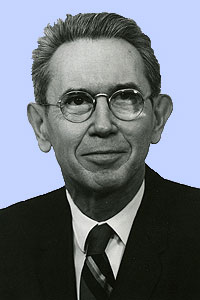
The Dr. James A. Jacobs Memorial Graduate Fellowship was established in 2007 as a memorial to Dr. James Albert Jacobs. Dr. Jacobs was a professor in the department from 1960-1978 and served as the department head from 1960-1973. Faculty and students who remember Dr. Jacobs and his numerous accomplishments established the award in his honor. It recognizes a graduate student, in good standing, who demonstrates academic excellence.
2025 Kalani Ellepola
2024 Mayank Sharma
2023 Evangelos Piliouras
2022 Mohamed Swailem
2021 Youngmin Lim
2020 Adbhut Gupta
2019 William (Bill) Rieger Jr.
2018 Rathsara Herath Mudiyanselage
2017 Ali Charkesht
2016 Mohsen Karkheiran
2015 Yuantao Xie
2014 Anna Lee
2013 Yao Zhang
2012 Shaola Ren
2011 Bei Jia
2010 Yen-Liang Chou
2009 Sven Dorosz
2008 Tao Jia
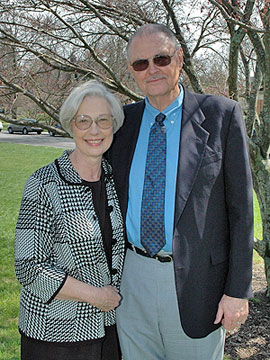
This award was established in 2008 by Dr. Klaus Wiemer and his wife, Stella Wiemer. Dr. Wiemer is a proud alumnus of the College of Science, having received his Ph.D. in physics in 1969. The couple created this award in honor of Associate Professor Emeritus of Physics, Dr. Clayton Drews Williams, who was Dr. Wiemer's mentor. Recipients shall be, at the time of receipt of the fellowship funds, graduate students within the Department of Physics, demonstrating academic excellence and good progress towards a Ph.D. in theoretical physics.
Dr. Williams grew up in Tulsa, Oklahoma, and received a bachelor's degree in physics at Rice University in 1957 and a Ph.D. in physics at Washington University in St. Louis in 1961 (under the guidance of Prof. Eugene Feenberg, for a dissertation on the ground-state energy of liquid helium). He was then employed full-time at Virginia Tech in teaching, research (in condensed matter theory), and department administration from 1961 to 1996, and was associate head of the Department of Physics for 18 years (1978-80, 1982-98). He was major advisor for nine successful Ph.D. students.
2025 Filippos Dakis, Alonso Perez-Lona
2024 Nabin Bhatta, Sara Shabani
2023 Panagiotis Anastasiou and Nicholas Ekanger
2022 Andrew Gustafson, Hong Yao
2021 Anri Karanovich, Bikun Li
2020 Riya Nandi, Deheng Song
2019 George Samuel Barron, Ruslan Ilyich Mukhamadiarov
2018 Bart Brown, Shadi Esmaeili
2017 Wenzheng Dong, Wei Gu
2016 He Feng, Weigang Liu
2015 Sun Chen, Jirui Guo
2014 Mengsu Chen, Ben Intoy
2013 Ulrich Dobramysl, Bei Jia
2012 Bei Jia, Hyunhang Park
2011 Ulrich Dobramysl, Zachary Lewis, Wenjia Liu
2010 Bei Jia, Yee Kao
2009 Andrew Fenley
Established by Prof. Beate Schmittmann in 2012, the Wan-Zia Scholarship is endowed through generous donations from the friends and colleagues of Prof. R. K. P. Zia. Intended as a continuation of the C. H. Wan Scholarship, it is awarded to and graduate and/or undergraduate students who are recognized for excellence in scholarship and active engagement of research
2025 Mayank Sharma
2024 Tommy Lam
2023 Mohamed Swailem
2022 Teshani Lihiniya Kumarage
2021 Adbhut Gupta
2020 Zijian Jiang
2019 Rathsara Herath Mudiyanselage
2018 Kate Pitchford
2017 Shannon Serra
2016 Cheng-Ying Tsai
2015 Harsh Chaturvedi
2014 Michael Meeker
2013 Linjun Li
2012 Chih-Yu Jao, Yoh Yamamoto
Following her receipt of a prize for her work in physics, Dr. Lubna Razia Ijaz donated the prize toward the establishment of a scholarship. She and her late husband, Professor Mujaddid Ahmed Ijaz of the Virginia Tech Physics Department, were associated with the university for a number of years and were well known in southwest Virginia. The Lubna Razia Ijaz Scholarship was first awarded in 1996 and goes to a student who has shown great commitment to the science of physics and has rendered significant service to the department and the cause of physics education.
2025 Rachel Maizel
2024 Sachli Abdizadeh Kalan
2023 Rachel Maizel
2022 Joseph Camilleri
2021 Youngmin Lim
2020 David Smith
2019 Zachary Stottler
2018 Kyle McLaughlin
2017 Jacob Carroll
2016 Shadi Esmaeili
2015 Brandon Bear
2014 Brandon Bear
2013 Ben Intoy
2012 Brandon Bear
2011 Matthew Raum
2010 Christopher Martin
2008 Ashley Tabb
2006 David Erickson, Mark Washenberger
2004 Brian Donovan
2002 Alma Robinson
2000 Adam R. Drake
1999 Adam R. Drake
1998 Richard M. Fortgang, Victor M. Gehman, Aaron R. Herrnstein, Charles D. King, Jr., Patrick J. Neyman, Mark S. Wallace
1997 Jennifer L. Lundy, Nathan M. Urban
1996 Danielle K. Benedetta, Colin C. Hill
The Ladies of Robeson Award was established in 2019 through a gift by an alumna Dr. Annalisa Pawlosky and Google. Awards are given to female undergraduate students who will pursue a graduate program, and to female graduate students who will pursue a post-doctoral position, outside of Virginia Tech. Graduate students with a first-author publication and undergraduates who have co-authored a paper are also eligible for this award
2025 Sarah Healy
2024 Dr. Karla Tellez Giron Flores
2023 Eva Takou
2022 Rebekah Pestes and Kate Pitchford
2021 Rathsara Herath Mudiyanselage, Riya Nandi
2019 Shadi Sadat Esmaeili
2025 Award Ceremony


2024 Award Ceremony




